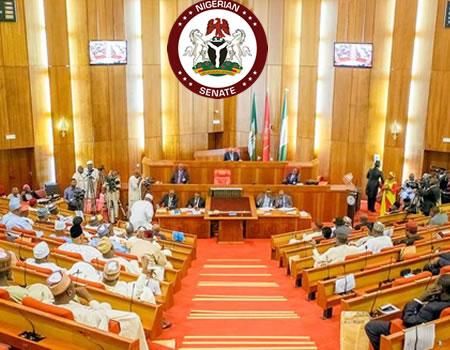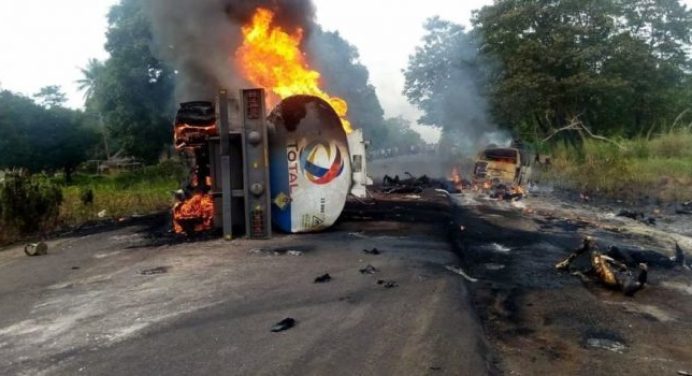Metro
There Is No Hiding Place for Crooked Officials in this Digital Age

By Joel Popoola
Uganda’s Zoom scandal has proved that there is no hiding place for crooked and corrupt officials in this digital age.
As a digital democracy campaigner I believe African governments must use digital technology to be more open about their activities. Transparency through technology is the most effective way of tackling corruption and building public confidence in our political institutions.
But having government officials film themselves plotting to pocket coronavirus relief funds and then putting the recordings on the internet is taking things too far, even for me.
But that’s what Ugandan government officials appear to have done this week.
Uganda this week recalled its ambassador to Denmark after she and her deputy appeared to be filmed plotting to carve up government cash meant to help with the COVID-19 crisis.
Catching crooks with secret cameras is nothing new – but these recordings were made by the alleged conspirators themselves, who due to COVID-19 social distancing and travel restrictions had to meet using Zoom video conferencing.
Ambassador Nimisha Madhvani and her staff are allegedly heard plotting to share out money meant to help Ugandan citizens stranded overseas, including bribing any auditors uncovering “jumbled funds” at the mission.
“Give yourselves $4000” (1.5m Naira) one official seems to instruct staff.
Clips from the meeting are now being shared widely on social media. The head of Uganda’s foreign ministry has pledged a full investigation and stated “the ministry wishes to express grave concern about the allegations … and takes this matter seriously”.
There is an important lesson for governments here. There is no hiding place for crooked officials in the digital age – so embrace the benefits of being transparent.
Stories like this will be familiar to many Nigerians. Just this week more than one newspaper reported that the case files of 15 high profile individuals facing graft and other criminal charges have “disappeared”. In the same vein, a former petroleum minister is under investigation of corruption offences in the UK. Though over the years, much of her trial has been media based.
In fact, Nigeria, has remained a beehive of recurrent issues of corruption and corrupt practices, and involving high profile officers. While most people were celebrating the clampdown of most supposedly corrupt officers such as former Abia state governor, Orji Uzo Kalu, who was however, released from jail after seven months, on technical grounds, the hunter suddenly became the hunted. In a twist of fate, the boss of the anti-graft outfit, Ibrahim Magu, was cut in his own web. Massive allegations bordering on fraud, theft and money laundering were leveled against. His position was instantly taken away, and he is still a presidential panel of enquiry.
In like manner, the Minister of Niger Delta Affairs, Obong Victor Akpabio, and his co-travellers in the Niger Delta Development Commission (NDDC), have remained in the eye of the storm over stealing of the commission’s funds running into billions of naira. That he is still in government says a lot the fight against corruption mantra.
I often think back to a report from the Global Integrity Index which reported that when it comes to aid, many African governments are “adept at engineering laws and institutions to meet foreign donor requirements despite their failure to deliver for ordinary citizens”.
This is what the international community thinks of us. But our own communities have even worse opinions of our democratic institutions. One study reported 72% of Nigerians believe the statement “most politicians are corrupt” describes our country well – and six-in-ten said it described Nigeria “very well.”
Another survey reported that almost half of Nigerians believe corruption cannot be defeated.
This needs to change. Which is why the digital democracy campaign I lead are creating technology to increase political transparency and accountability and making it freely available to all Nigerians.
Our free Rate Your Leader app lets confirmed voters ask direct questions to their local elected leaders and allows them to rate the answers they receive for their neighbours to see.
The app also helps politicians engage directly with the people who elected them building relationships of trust with the electorate.
But it should not be left to enlightened politicians and organisations such as Rate Your Leader to take such actions. We need a co-ordinated national response
People often talk of not wanting to air their dirty laundry in public, but my solution to that is not to dirty your laundry in the first place!
If you have nothing to hide, you have nothing to fear – and everything to gain. And even if governments make mistakes – and everyone makes mistakes! – not only is sunlight is always the best disinfectant, voters respect leader who take responsibility when things do not go to plan.
The good news is Nigeria – whilst still estimated to have lost $400 billion to corruption since independence – has been at the forefront of digitalizing its coronavirus relief payments. Not only do digital payments get the money to the people who need it faster, the payments also leave a secure electronic paper trail proving that the money ended up in the right hands.
There has also been increasing publication of government borrowing, spending and procurement decisions on the Treasury website.
It is important that Nigeria continues with this direction of travel.
This week President Buhari listed building “a system to fight corruption (and) improve governance” as one of his administration’s priorities for the next three years.
The digital publication of government records, made easily accessible and comprehensible to all Nigerians using smartphones, will be key to delivering on that priority.
Joel Popoola is a Nigerian tech entrepreneur and digital democracy campaigner and is creator of the Rate Your Leader app. You can reach Joel on Twitter @JOPopoola
Metro
Military Discovers B’Haram Underground Storage, Fuel Dump

Troops of Operation Hadin Kai have uncovered an underground Boko Haram logistics storage facility stocked with medical supplies, fuel and other critical materials after overrunning several terrorist enclaves in the Timbuktu Triangle area of Borno State.
The discovery followed a series of coordinated, intelligence-led offensives conducted on Sunday across Chilaria, Garin Faruk and Abirma, during which the troops also repelled multiple drone attacks launched by the terrorists.
The Media Information Officer of the Joint Task Force North-East, Operation Hadin Kai, Lt. Col. Uba Sani, disclosed this in a statement issued on Monday.
According to Sani, the operation, carried out under Operation Desert Sanity, resulted in the destruction of several terrorist camps and significantly degraded the logistical and operational capabilities of Boko Haram and ISWAP elements operating in the axis.
“Troops of the Joint Task Force (North-East), Operation HADIN KAI, have recorded further operational successes in the ongoing Operation DESERT SANITY, destroying multiple terrorist camps, recovering arms and equipment, and repelling coordinated attacks by the insurgents in the Timbuktu Triangle,” the statement said.
It added that on Sunday, January 18, 2026, troops advanced from their harbour areas and conducted deliberate, intelligence-driven operations against identified terrorist enclaves in Chilaria, Garin Faruk and Abirma.
Sani explained that the operation was supported by the Air Component of Operation Hadin Kai, which provided persistent Intelligence, Surveillance and Reconnaissance coverage throughout the advance.
He said during the clearance operations, “troops recovered several items of military significance, including Baofeng radios, phones, five AK-47 magazines, several rounds of 7.62 × 39mm special ammunition and 7.62mm NATO belted ammunition.”
Others include “several Boko Haram/ISWAP flags, links of 12.7 × 108 mm ammunition, diesel powered grinding machines, large quantity of medical supplies, several bags of grains, pick-up truck, underground logistics storage and petroleum and oil lubricant dump, which all further degraded the operational and logistical capability of the terrorists.”
He said the “recoveries further degraded the operational and logistical capacity of the terrorists,”.
However, Sani revealed that at about midday, the advancing troops came under armed drone attacks launched by the terrorists.
“Despite this, the troops maintained momentum and continued the offensives. A second drone attack attempted in the evening was also decisively repelled, forcing the terrorists to withdraw and reaffirming the troops’ dominance of the area,” he said.
Sani added that despite sustained engagements, troop morale remains high and fighting efficiency continues to be maintained.
“The general security situation in the area is assessed as calm but unpredictable, with troops remaining vigilant and at a high state of readiness,” he stated.
He concluded that the military high command has reaffirmed its commitment to sustaining the operations, stressing that troops remain resolute in their mission to eliminate terrorist threats, protect civilians and restore lasting peace and stability to the North-East.
The Punch
Metro
FRSC Confirms No Lives Lost in Apapa Fuel Tanker Crash, Advises Residents Against Scooping Fuel

The Federal Road Safety Corps (FRSC) has confirmed a minor lone crash involving a NIPCO truck that occurred in the early hours of Monday on Liverpool Bridge, outward Apapa, saying that no casualties were recorded.
The incident, according to the Public Education Officer, SRC, Damilola Jayeola, occurred at about 0817hrs and was promptly reported and responded to by FRSC operatives. Three adult males were involved in the crash, with no injury or fatality recorded.
Preliminary findings attributed the crash to speeding and reckless driving, despite the road being smooth at the time of the incident.
FRSC operatives, in collaboration with the Nigeria Police Force, Lagos State Traffic Management Authority (LASTMA), the Nigerian Ports Authority (NPA), and the Federal Fire Service, are on ground managing traffic and securing the scene to prevent secondary incidents.
The Lagos State Sector Commander, Corps Commander Kehinde G. Hamzat, has advised members of the public to desist from scooping the spilled fuel and urged motorists to strictly adhere to speed limits and drive responsibly, particularly on bridges and other high-risk corridors, to prevent avoidable crashes.
Metro
Apapa Tanker Accident: Scooping Spilled Fuel is Suicidal, Sanwo-Olu Cautions Lagos Residents

Governor Babajide Sanwo-Olu has described the scooping of fuel by residents at the Apapa Bridge as a “suicide mission,” warning that the Lagos State Government will intensify enforcement to prevent actions capable of triggering mass casualties.
Sanwo-Olu spoke on Monday at the signing of the 2026 Appropriation Bill at the Lagos House, Ikeja, shortly after reports emerged of residents rushing to scoop spilled fuel from a tanker incident at Apapa.
He expressed disappointment at the conduct, stressing that such behaviour places lives at grave risk.
The governor commended the swift intervention of Lagos first responders and the police, who cordoned off the area and brought the situation under control before any explosion or disaster could occur.
He cautioned residents to desist from reckless acts, noting that the State would “leave no stone unturned” in safeguarding lives and property.
Linking the incident to broader issues of indiscipline, Sanwo-Olu said the government would enforce tougher penalties against environmental and safety violations, including indiscriminate dumping of refuse on road medians.
He disclosed that the 2026 budget makes provisions to strengthen the capacity of the Lagos Waste Management Authority (LAWMA) and private sector participants, with plans to expand compactor truck fleets and deploy additional equipment.
“We have instructed LAWMA not only to apprehend offenders but also to ensure they are charged for environmental violations,” the governor said.






